第21章 The French And Indian War (2)
The war with the French of Canada and their Indian allies is of interest here only in so far as it affected the government of Pennsylvania.From this point of view it involved a series of contests between the proprietors and the Crown on the one side and the Assembly on the other.The proprietors and the Crown took advantage of every military necessity to force the Assembly into a surrender of popular rights.But the Assembly resisted, maintaining that they had the same right as the British Commons of having their money bills received or rejected by the Governor without amendment.Whatever they should give must be given on their own terms or not at all; and they would not yield this point to any necessities of the war.
When Governor Morris asked the Assembly for a war contribution in 1754, they promptly voted 20,000 pounds.This was the same amount that Virginia, the most active of the colonies in the war, was giving.Other colonies gave much less; New York, only 5000pounds, and Maryland 6000 pounds.Morris, however, would not assent to the Assembly's bill unless it contained a clause suspending its effect until the King's pleasure was known.This was an attempt to establish a precedent for giving up the Assembly's charter right of passing laws which need not be submitted to the King for five years and which in the meantime were valid.The members of the Assembly very naturally refused to be forced by the necessities of the war into surrendering one of the most important privileges the province possessed.It was, they said, as much their duty to resist this invasion of their rights as to resist the French.
Governor Morris, besides demanding that the supply of 20,000pounds should not go into force until the King's pleasure was known, insisted that the paper money representing it should be redeemable in five years.This period the Assembly considered too short; the usual time was ten years.Five years would ruin too many people by foreclosures.Moreover, the Governor was attempting to dictate the way in which the people should raise a money supply.He and the King had a right to ask for aid in war;but it was the right of the colony to use its own methods of furnishing this assistance.The Governor also refused to let the Assembly see the instructions from the proprietors under which he was acting.This was another attack upon their liberties and involved nothing less than an attempt to change their charter rights by secret instructions to a deputy governor which he must obey at his peril.Several bills had recently been introduced in the English Parliament for the purpose of making royal instructions to governors binding on all the colonial assemblies without regard to their charters.This innovation, the colonists felt, would wreck all their liberties and turn colonial government into a mere despotism.
The assemblies of all the colonies have been a good deal abused for delay in supporting the war and meanness in withholding money.But in many instances the delay and lack of money were occasioned by the grasping schemes of governors who saw a chance to gain new privileges for the Crown or a proprietor or to weaken popular government by crippling the powers of the legislatures.
The usual statement that the Pennsylvania Assembly was slow in assisting the war because it was composed of Quakers is not supported by the facts.The Pennsylvania Assembly was not behind the rest.On this particular occasion, when their large money supply bill could not be passed without sacrificing their constitutional rights, they raised money for the war by appointing a committee which was authorized to borrow 5000 pounds on the credit of the Assembly.
Other contests arose over the claim of the proprietors that their estates in the province were exempt from taxation for the war or any purpose.One bill taxing the proprietary estates along with others was met by Thomas Penn offering to subscribe 5000 pounds, as a free gift to the colony's war measures.The Assembly accepted this, and passed the bill without taxing the proprietary estates.It turned out, however, to be a shrewd business move on the part of Thomas Penn; for the 5000 pounds was to be collected out of the quitrents that were in arrears, and the payment of it was in consequence long delayed.The thrifty Thomas had thus saddled his bad debts on the province and gained a reputation for generosity at the same time.
Pennsylvania, though governed by Quakers assisted by noncombatant Germans, had a better protected frontier than Maryland or Virginia; no colony, indeed, was at that time better protected.
The Quaker Assembly did more than take care of the frontier during the war; it preserved at the same time constitutional rights in defense of which twenty-five years afterwards the whole continent fought the Revolution.The Quaker Assembly even passed two militia bills, one of which became law, and sent rather more than the province's full share of troops to protect the frontiers of New York and New England and to carry the invasion into Canada.